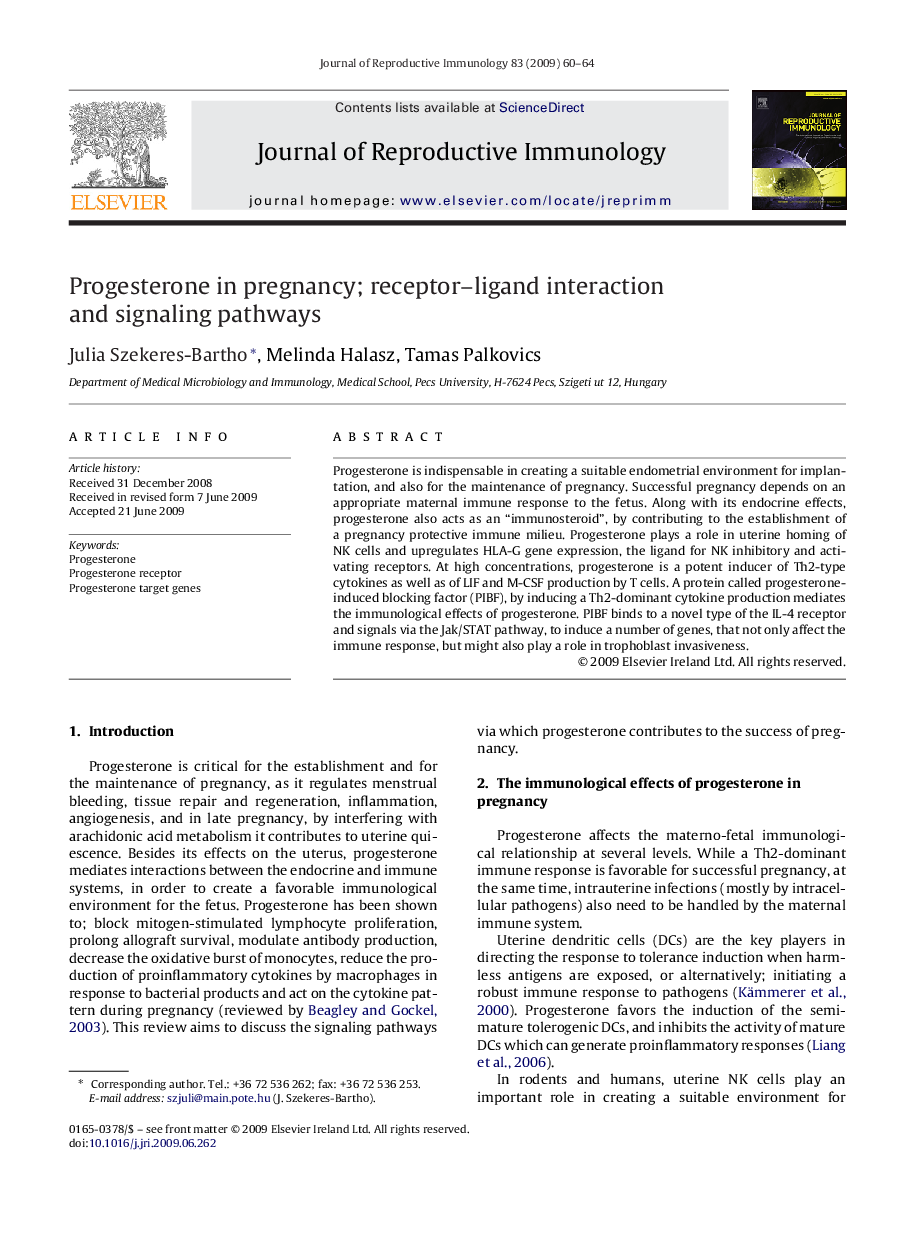| Article ID | Journal | Published Year | Pages | File Type |
|---|---|---|---|---|
| 3961615 | Journal of Reproductive Immunology | 2009 | 5 Pages |
Progesterone is indispensable in creating a suitable endometrial environment for implantation, and also for the maintenance of pregnancy. Successful pregnancy depends on an appropriate maternal immune response to the fetus. Along with its endocrine effects, progesterone also acts as an “immunosteroid”, by contributing to the establishment of a pregnancy protective immune milieu. Progesterone plays a role in uterine homing of NK cells and upregulates HLA-G gene expression, the ligand for NK inhibitory and activating receptors. At high concentrations, progesterone is a potent inducer of Th2-type cytokines as well as of LIF and M-CSF production by T cells. A protein called progesterone-induced blocking factor (PIBF), by inducing a Th2-dominant cytokine production mediates the immunological effects of progesterone. PIBF binds to a novel type of the IL-4 receptor and signals via the Jak/STAT pathway, to induce a number of genes, that not only affect the immune response, but might also play a role in trophoblast invasiveness.
